The different partners
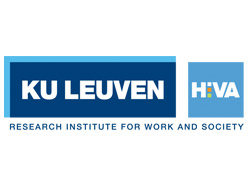 HIVA‐Research Institute for Work and Society is an interfaculty and multi‐disciplinary research centre at KU Leuven which conducts interdisciplinary policy‐oriented research into social problems of relevance to workers, underprivileged groups and social organisations. Our top priorities are scientific quality and social relevance and we translate our research findings into policy advice and training. HIVA has participated in a wide range of EUprojects providing the institute with a strong orientation towards the European perspective.
HIVA‐Research Institute for Work and Society is an interfaculty and multi‐disciplinary research centre at KU Leuven which conducts interdisciplinary policy‐oriented research into social problems of relevance to workers, underprivileged groups and social organisations. Our top priorities are scientific quality and social relevance and we translate our research findings into policy advice and training. HIVA has participated in a wide range of EUprojects providing the institute with a strong orientation towards the European perspective.The research unit ‘Poverty, migration and social integration’ within HIVA combines several disciplines (economics, political sciences, sociology, psychology, social work, intercultural sciences etc.) and a variety of quantitative and qualitative research methods.
The research programme currently mainly covers the following strands: (1) empowerment methods in social services for vulnerable groups; (2) child poverty; (3) migration and integration; and (4) evaluation of ‘mainstream’ socio‐economic policies from the perspective of social inclusion.
Key personnel
Prof. Ides Nicaise has a background in economics and wrote his PhD on ‘Poverty and human capital’, i.e. the relationships between persistent poverty and inequalities in the education and labour market systems. He further specialised in social policy, more precisely the relationships between education, labour market policy and social inclusion (in rich as well as developing countries). He also teaches at the Faculty of Psychology and Education Sciences and the Faculty of Law. Previous and current research topics include social profit management, labour economics, economics of education, and social security economics. He is the Belgian expert in the EC’s Network of Independent Experts on Social Inclusion (now transformed into the Social Policy Network).
Besides his professional activities, he chairs the Belgian Service for the Fight against Poverty, a centre created by law as an interface between the government, the civil society and grassroots organisations defending the interests of the poor. Through this role (and extensive experience in voluntary work), he has developed strong collaborative relations with many civil society organisations.
website: www.hiva.be
 Unite Mixte de Recherches ‘Institutions et Dynamiques Historiques de l’Economie’ (IDHES), Ecole Normale Superieure de Cachan, is an internationally renowned interdisciplinary (economics, history, law, sociology) research institute, founded in 1997 by the CNRS, the Ecole Normale Superieure de Cachan and the Universities of Paris – I Pantheon Sorbonne, VIII Vincennes‐Saint Denis, X Nanterre and XI Paris Sud. For the past 15 years, the IDHES has been coordinating and/or been a member of a series of European research programs on social and employment policies.
Unite Mixte de Recherches ‘Institutions et Dynamiques Historiques de l’Economie’ (IDHES), Ecole Normale Superieure de Cachan, is an internationally renowned interdisciplinary (economics, history, law, sociology) research institute, founded in 1997 by the CNRS, the Ecole Normale Superieure de Cachan and the Universities of Paris – I Pantheon Sorbonne, VIII Vincennes‐Saint Denis, X Nanterre and XI Paris Sud. For the past 15 years, the IDHES has been coordinating and/or been a member of a series of European research programs on social and employment policies.The fields of research of Robert Salais and Christian Bessy are economic coordination in markets and firms and the role of institutions. They extensively work on European and national policies and law, relative to products, social services, employment and labour markets. As economists, they favour interdisciplinary research with history, sociology and law. They have coordinated (and/or worked in) a series of European research programs relative to poverty, the social dimension of Europe, as well as European employment and social welfare policies.
Key personnel
Robert Salais, economist, is currently: Associate Senior Researcher at the IDHES, Ecole Normale Superieure de Cachan. Scientific Coordinator of the European research programs: EUROCAP (FP5 2002‐2005) ‘Social dialogue, employment and territories. Towards a European politics of capabilities’; and CAPRIGHT (FP6 Integrated Program 2007‐ 2010) ‘Resources, rights and capabilities: In search for social foundations for Europe’. Fellow at the Wissenschaftskolleg zu Berlin (WIKO) ‐ Germany in 2005‐2006. Member of the Centre franco‐allemand de recherches en sciences sociales Marc Bloch, Berlin from 2008 to 2011. Resident at the Institute of Advanced Studies of Nantes (France) in 2011‐2012.
website: www.cnrs.fr
 The Sociological Research Institute in Göttingen (‘Soziologisches Forschungsinstitut’, or SOFI) was founded in 1968 as a non‐profit association with university affiliations. The goal of the institute is to analyse social processes by means of using scientific methods. This includes an ongoing diagnosis of our changing society. Sociological expertise contributes to the formation of democratic societies, and the establishment of SOFI contributed to creating a basis for empirical research in particular in the areas of employment, work, industry and education sociology.
The Sociological Research Institute in Göttingen (‘Soziologisches Forschungsinstitut’, or SOFI) was founded in 1968 as a non‐profit association with university affiliations. The goal of the institute is to analyse social processes by means of using scientific methods. This includes an ongoing diagnosis of our changing society. Sociological expertise contributes to the formation of democratic societies, and the establishment of SOFI contributed to creating a basis for empirical research in particular in the areas of employment, work, industry and education sociology.
Transferring socially relevant knowledge from academia to non‐academic societal actors is a key concern of SOFI. At the methodological level, SOFI possesses a longstanding and fruitful tradition of performing qualitative research, in particular concerning workers and firms. In recent years, it has also developed an expertise to do cutting‐edge quantitative analysis.Key Personnel
Dr. René Lehweß‐Litzmann, is a member of the SOFI research staff. His scientific interest focusses on the evolution of socio‐economic models in European countries, with regard to the labour market, labour market policy, social security and well‐being. René has been involved in European and German research network projects: CAPRIGHT, and Sozioökonomische Berichterstattung 2 and 3. His doctoral thesis on “Capability as a Yardstick for Flexicurity” has been published by Goettingen University Press in 2014.
Dr. Rüdiger Mautz, is a long-time member of the SOFI research staff and specialised in qualitative research methods. His main research areas include industrial sociology, environmental sociology and sociology of the welfare state. His recent research has concentrated on energy system transitions and the role of NGOs or bottom-up initiatives in this process. Rüdiger is author/co-author of numerous books and scientific articles.website: www.sofi-goettingen.de
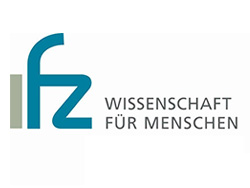 The IFZ (international research centre for social ethics) is a not‐for‐profit institute of Catholic law under the supervision of the Catholic Higher Education Service Foundation (Katholisches Hochschulwerk, www.khw.at). It aims at providing an inspiring environment for research on foundational ethical and social questions.
The IFZ (international research centre for social ethics) is a not‐for‐profit institute of Catholic law under the supervision of the Catholic Higher Education Service Foundation (Katholisches Hochschulwerk, www.khw.at). It aims at providing an inspiring environment for research on foundational ethical and social questions.To this end it functions as an institute for advanced studies, fosters collaboration across disciplines by hosting guest researchers from various disciplinary and cultural backgrounds and offering support and training for junior researchers in the area of social ethics. The ifz combines an excellence in philosophy with applied work, mainly falling in the category of qualitative empirical work. The directors offer advice in their respective disciplines: philosophy, theology, social geography, psychology and philosophy of law.
The ifz is closely collaborating with the Centre for Ethics and Poverty Research of the University of Salzburg.
Key personnel
Dr. Ortrud Leßmann is an economist by training. Her research interests lie in the overlap of economics, philosophy and sociology and are geared towards the theoretical foundation of social policy. She received her PhD at the University of Oldenburg in 2005. Since then she has done research in several projects at the Helmut-Schmidt-University in Hamburg. She is an expert on the capability approach and has published widely in refereed journals across disciplines. She has also worked as a lecturer for sociology, economics and social work at several higher education institutions in Bremen, Hamburg and Eichstätt. Furtheron she has worked as a consultant for several research projects and institutions. Dr. Leßmann is a founding member of the Human Development and Capability Association (HDCA, www.hd‐ca.org), convened the Education Thematic Group in HDCA from 2008‐2010 and is since a member of the executive council in the position of the network coordinator of HDCA.
Elisabeth Buchner, MA is a member of the ifz research staff since October 2013 specialised in qualitative research methods. She has a background in political science and sociology and spent work and research stays in Bolivia and India. At the ifz she is doing social research on different topics. Her recent research has concentrated on the concept of the good life in elderly care care in Austria, on ethics in the daily routines of a hospital and on political ethics in the daily routines of Austrian politicians.
Dr. Gunter Graf studied philosophy in Salzburg where he received his PhD in 2012. Since 2008 he is a research fellow at the international research centre for social and ethical questions (ifz) in Salzburg, and since 2013 and with April 2014 he started as a PostDoc researcher at the Centre for Ethics and Poverty Research (CEPR) in the project ‘Social justice and child poverty’. He spent work and research stays in Peru, Brazil, Namibia and London. At the ifz he is working at the intersection between ethical theory and moral practice, being involved in projects which aim to make a difference in the ‘real world’. E.g. he worked together with SOS Children’s Villages International in order to improve care facilities in Namibia, with Save the Children Salzburg to guide the improvement of their standards and with Caritas Austria on the concept of the good life in elderly care. In philosophy, he mainly works in political and social philosophy, with a focus on the capability approach and its relation to poverty and children.
website: www.ifz‐salzburg.at
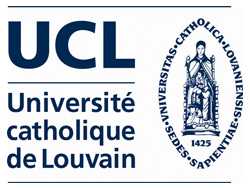 The Catholic University of Louvain, in Belgium, is one of the oldest universities in Europe. Founded in 1425, it was split in 1968. The French‐speaking part is located in Louvain‐La‐Neuve. This University is a ‘complete’ University (all the Faculties, including medicine). The CriDIS is an interdisciplinary Center in social sciences founded in 2010. 40 researchers participate at various projects of research. It is devoted to the study of democracy. Specialized in social sciences, the research of the Centre tries to develop a critical outlook on current political, economic, urban and clinical issues with an emphasis on normative and empirical methodologies (cf. http://www.uclouvain.be/cridis.html). It is specialized in urban sociology, in economic sociology, legal sociology and in political sociology. Many projects on participation, with empirical inquiries. Very active in the reflection on the Capability Approach and its reception in sociology.
The Catholic University of Louvain, in Belgium, is one of the oldest universities in Europe. Founded in 1425, it was split in 1968. The French‐speaking part is located in Louvain‐La‐Neuve. This University is a ‘complete’ University (all the Faculties, including medicine). The CriDIS is an interdisciplinary Center in social sciences founded in 2010. 40 researchers participate at various projects of research. It is devoted to the study of democracy. Specialized in social sciences, the research of the Centre tries to develop a critical outlook on current political, economic, urban and clinical issues with an emphasis on normative and empirical methodologies (cf. http://www.uclouvain.be/cridis.html). It is specialized in urban sociology, in economic sociology, legal sociology and in political sociology. Many projects on participation, with empirical inquiries. Very active in the reflection on the Capability Approach and its reception in sociology.Key personnel
Prof. Jean De Munck is philosopher and sociologist.
Diploma: PhD in philosophy, with the greatest distinction (Catholic University of Louvain, 1991).
Researcher: 1986‐2001: researcher at the Centre de philosophie du droit (Catholic University of Louvain).
Visiting scholar:
1992‐1993: visiting scholar to the New School for Social Research de New‐York (U.S.A.):
1995‐ 1996: visiting scholar to the Jurisprudence and Social Policy Program, UC Berkeley (U.S.A.).Professor: chargé de cours (1999), professor (2007) at the Catholic University of Louvain.
He teaches sociology, sociology of law, theories of regulation, globalization and sociology of culture. Invited professor: 1999‐2011: Cours dispensé à l’Université de Paris X‐Nanterre (DEA économie des institutions): Cognition, philosophie sociale, droit et économie (20h00); Octobre‐novembre 2011/march 2014: Seminario de sociología del derecho, Universidad nacional de Colombia, sede de Bogotá. Prof. Jean De Munck was the coordinator of the theoretical Work Package of Eurocap network (2000‐2005) and of the Work Package on Social Dialogue in Capright (2005‐2010). He was the coordinator of the project Les nouvelles formes de l'action publique: le cas de la santé mentale (2001‐2003), with O. Kuty (Ulg), J.L. Genard (ULB) and D. Vrancken (Ulg) (funded SSTC, Belgique). He was the first Chairman of the Graduate School of Social Sciences in French‐speaking Belgium (4 universities) in 2007‐2010.website: www.uclouvain.be
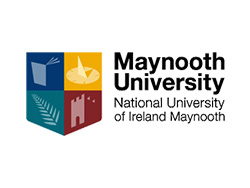 The National University of Ireland Maynooth was established in 1997, but traces its origins to the foundation in 1795 of St. Patrick’s College Maynooth. NUIM was ranked #67 in the new Times Higher Education (THE) 100 Under 50 rankings (2014), voted Irish University of the Year in 2008 (Sunday Times University Guide) and became the first and only institution outside of North America to be included in the Princeton Review of Best Colleges (2011). Ireland’s oldest Sociology Department is widely acknowledged as a centre of teaching and research excellence as well as an exemplar of public sociology and engagement. The Department houses the Political Economy and Work (PEW) research cluster which explores the relationship between political economy, work and working lives using critical paradigms which question the conceptuallisation of a privileged and distinct sphere of social life termed ‘the economy’, in which the social value of the drive for unlimited economic growth is regarded as axiomatic. We encourage creative thinking about to transform socioeconomic structures to facilitate pleasure and fulfilment in everyday labour.
The National University of Ireland Maynooth was established in 1997, but traces its origins to the foundation in 1795 of St. Patrick’s College Maynooth. NUIM was ranked #67 in the new Times Higher Education (THE) 100 Under 50 rankings (2014), voted Irish University of the Year in 2008 (Sunday Times University Guide) and became the first and only institution outside of North America to be included in the Princeton Review of Best Colleges (2011). Ireland’s oldest Sociology Department is widely acknowledged as a centre of teaching and research excellence as well as an exemplar of public sociology and engagement. The Department houses the Political Economy and Work (PEW) research cluster which explores the relationship between political economy, work and working lives using critical paradigms which question the conceptuallisation of a privileged and distinct sphere of social life termed ‘the economy’, in which the social value of the drive for unlimited economic growth is regarded as axiomatic. We encourage creative thinking about to transform socioeconomic structures to facilitate pleasure and fulfilment in everyday labour.Key personnel
Prof. Mary Murphy has a background in economics, sociology and business studies. After graduating, she worked as campaigner and policy analyst for 15 years in antipoverty and labour market NGO’s. She returned to academic research in 2002 and graduated with a PhD on ‘Domestic Constraints on Globalisation: A case study of Irish social security policy 1986‐2006. In 2006, she took up her present position as a lecturer in sociology in NUIM in 2007. She has now 15 years of specific experience in the field of social security, minimum income, activation and gender equality. In 2011 she was ministerial appointed in the National Advisory Group on Tax and Social Welfare. In 2013 she was appointed board member of the Irish Equality Authority, Commissioner in the Irish Human Rights Commission and Commissioner designate at the Irish Human Rights and Equality Commission.
website: www.nuim.ie
 The Department of Politics, History and International Relations has a long‐standing reputation for multidisciplinary research in European politics, history, political economy, European Union studies, international governance and security studies.
The Department of Politics, History and International Relations has a long‐standing reputation for multidisciplinary research in European politics, history, political economy, European Union studies, international governance and security studies.Key personnel
Dr Jeremy Leaman is Senior Lecturer in European Political Economy at the Department of Politics, History and International Relations, Loughborough University. He took both his degrees from Liverpool University: a BA in German Studies and a PhD on the German philosopher, Friedrich Nietzsche. His primary areas of research are the political economy of Germany and the European Union, notably in the fields of taxation policy and monetary policy. His teaching duties at Loughborough have included modern German history, German and European political economy, German foreign relations, as well as German language.
He has been managing editor of the Journal of Contemporary European Studies since 1992 and a contributing consultant to Oxford Analytica since 1996. He was also co‐editor of Debatte – Review of Contemporary German Affairs from 1993 to 2003 and remains a member of the editorial board of the journal under its new name: Review of Contemporary Central and Eastern Europe. He is an active member of the EuroMemo Group of Economists for an Alternative Economic Policy in Europe and of the UK Tax Justice Network.
He shares a strong conviction with colleagues in the Department concerning the virtues of interdisciplinarity and integrated area studies as features of rigorous scholarship in the social sciences. The specific focus of his current research is macro‐economic policy in Europe, with particular reference to taxation reforms at national and regional level, but also to crisis management since 2007. Apart from journal articles and book chapters, he has produced a single‐authored book on Germany’s political economy since 1982, two edited books – on Youth in Contemporary Europe and The Political Economy of Tax Justice – and edited a special issue of the Journal of Contemporary European Studies on Crisis Management in Europe.
He is currently completing a monograph on The Political Economy of European Taxation: The Lessons of Failure. He has collaborated with scholars in several European countries in comparative studies of family policy, social policy and, most recently, the intergenerational transmission of inequality, all funded by EU research grants. His future research plans includes a study of hegemonic economic relations in modern Europe, an analysis of growth delusions in economic policy and an examination of the political economy of public goods in Europe.
website: www.lboro.ac.uk
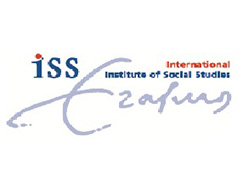 The Erasmus University of Rotterdam (EUR) is a comprehensive university; it enjoys a strong international reputation for its fundamental and applied research. In the social sciences, EUR has a strong tradition in policy‐oriented research for the Dutch government, the European Commission and other international bodies. International Institute of Social Studies (ISS) is a research‐led University Institute for higher education within the Erasmus University Rotterdam (EUR). It is recognized by its intellectual peers for the critical and inter‐disciplinary knowledge and high quality publications that it produces, by its students for the high quality post‐graduate education it provides and by government ministries, international organizations and the general public for its numerous contributions to public debates on international development policies, the processes of globalization and inequity.
The Erasmus University of Rotterdam (EUR) is a comprehensive university; it enjoys a strong international reputation for its fundamental and applied research. In the social sciences, EUR has a strong tradition in policy‐oriented research for the Dutch government, the European Commission and other international bodies. International Institute of Social Studies (ISS) is a research‐led University Institute for higher education within the Erasmus University Rotterdam (EUR). It is recognized by its intellectual peers for the critical and inter‐disciplinary knowledge and high quality publications that it produces, by its students for the high quality post‐graduate education it provides and by government ministries, international organizations and the general public for its numerous contributions to public debates on international development policies, the processes of globalization and inequity.Key personnel
Mahmoud Meskoub is an economist whose recent work has been on poverty and social policy in developing as well as in the EU countries. He has also worked on migration issues and social protection of migrants in Europe. He brings to the project his extensive work on poverty studies and social policy to the project. He has worked as a consultant to the United Nations Research Institute in Social Development (UNRISD), United Nations Fund for Population Activities (UNFPA), the International Labour Office (ILO) and World Bank (WB).
website: www.eur.nl
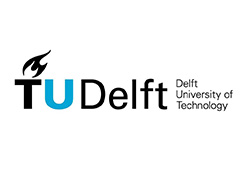 Delft University of Technology (TU Delft), founded in 1842, is the oldest, largest and most comprehensive university of technology in the Netherlands. It offers a wide variety of education in Science, Engineering and Design. TU Delft has shown its responsibility towards society by focusing its research on four global themes: Energy, Environment, Infrastructures, and Health. It is partner in two recently granted KIC’s (Knowledge and Innovation Community) Environment and ICT. OTB – Research for the Built Environment is a department at the faculty of Architecture and consists of three research programs and more than 100 researchers. The core task of the department is to conduct research. Its research is mainly concerned with market and policy issues related to the Built Environment and covers the full range from more theoretical to applied sciences. The Housing group is a multidisciplinary group that is specialised in comparative housing research. The group has more than two decades of experience in comparative research and participated in several research projects for the European Commission.
Delft University of Technology (TU Delft), founded in 1842, is the oldest, largest and most comprehensive university of technology in the Netherlands. It offers a wide variety of education in Science, Engineering and Design. TU Delft has shown its responsibility towards society by focusing its research on four global themes: Energy, Environment, Infrastructures, and Health. It is partner in two recently granted KIC’s (Knowledge and Innovation Community) Environment and ICT. OTB – Research for the Built Environment is a department at the faculty of Architecture and consists of three research programs and more than 100 researchers. The core task of the department is to conduct research. Its research is mainly concerned with market and policy issues related to the Built Environment and covers the full range from more theoretical to applied sciences. The Housing group is a multidisciplinary group that is specialised in comparative housing research. The group has more than two decades of experience in comparative research and participated in several research projects for the European Commission.Key personnel
Prof. Marja Elsinga holds a chair in Housing Institutions and Governance at the Faculty of Technology, Policy and Management. She studied consumer sciences in Wageningen University and did a postdoctoral course in Policy Sciences and a PhD (with distinction) in at TU Delft. She is specialised in comparative housing and welfare research. She has many years of experience in leading research projects and working with international research teams. She has published many journal articles and books and participates in several editorial boards was Associate Editor in Chief of housing journals and Elseviers’ Encyclopeadia of Housing and Home.
Marietta Haffner (PhD), an economist by origin, has two decades of experience in conducting European comparative studies that cover subjects in housing finance and economics, housing policy, taxation, and affordability. She has experience with analysing large databases such as EU-SILC. Next to conducting research, Marietta Haffner is, involved in different roles in scientific journals in the field of housing: Housing Studies (management board) and Journal of Housing and the Built Environment (international expert team). Presently, she is office coordinator of the European Network for Housing Research (ENHR) and editor of the ENHR-Newsletter.
website: www.tudelft.nl and www.bk.tudelft.nl/en/about-faculty/departments/otb-research-for-the-built-environment/about-otb/
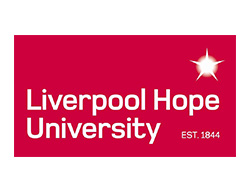 With a history extending 168 years, Liverpool Hope University has developed a strong tradition of scholarship and research in key disciplines. As the only ecumenical university foundation in Europe the University’s work has been shaped by Christian principles but embraces those of all faiths and none. Accordingly, the university has a strong emphasis on the values of social justice. This is also the case within the Department of Social Work, Care and Justice. We study and research issues that look at the impact of state policy and economic changes on the lives of the poorest and most marginalised communities in our society. This means focusing on the ‘public causes’ of so much ‘private pain’. But it also means looking at the impact that changes in social work provision has on service users, carers and practitioners on the front‐line. We have a strong research history of publishing in the area of radical and critical social work and social policy. Academic staff have published in the areas of racism, mental health, immigration, poverty and gender inequality. The department is currently involved in a range of different research project including an evaluation of the role of social work in a school in Sheffield and a project looking at the impact of neoliberalism and managerialism on social work practice. The Department also has strong links with a range of local community non‐profit organisations such as PSS, and Asylum Link. The international journal Critical and Radical Social Work is based in the Department and is a forum for publishing high quality research papers in an accessible way that is of use to academics, practitioners and service users.
With a history extending 168 years, Liverpool Hope University has developed a strong tradition of scholarship and research in key disciplines. As the only ecumenical university foundation in Europe the University’s work has been shaped by Christian principles but embraces those of all faiths and none. Accordingly, the university has a strong emphasis on the values of social justice. This is also the case within the Department of Social Work, Care and Justice. We study and research issues that look at the impact of state policy and economic changes on the lives of the poorest and most marginalised communities in our society. This means focusing on the ‘public causes’ of so much ‘private pain’. But it also means looking at the impact that changes in social work provision has on service users, carers and practitioners on the front‐line. We have a strong research history of publishing in the area of radical and critical social work and social policy. Academic staff have published in the areas of racism, mental health, immigration, poverty and gender inequality. The department is currently involved in a range of different research project including an evaluation of the role of social work in a school in Sheffield and a project looking at the impact of neoliberalism and managerialism on social work practice. The Department also has strong links with a range of local community non‐profit organisations such as PSS, and Asylum Link. The international journal Critical and Radical Social Work is based in the Department and is a forum for publishing high quality research papers in an accessible way that is of use to academics, practitioners and service users.Key personnel
Prof. Michael Lavalette is Head of Department of Social Work, Care and Justice, Liverpool Hope University. He has a long history of research and teaching in the fields of sociology, social policy and social work. His publication list includes books, papers and reports covering a range of social work and social policy topics and themes. He has written and researched on topics as varied as the extent and nature of child labour, marketization and adult social care markets, racism and social work, austerity and its social impacts and social work in a range of global locations (including the Palestinian West bank, India and Lebanon). Michael Lavalette is a founder of the Social Work Action Network (Swan), a radical social work action group that brings together academics, service users, social workers and students.
Dr. Joe Greener is lecturer in social policy within the Department. He wrote his PhD on the impact of privatisation and marketization on frontline residential elderly care. The project explored the how various economic and political processes structured the poverty of both elderly service users and frontline care workers. Prior to this he has worked on number of large Scottish Government funded projects exploring health inequalities in Scotland. His research interests are strongly focused around inequalities in the areas of the sociology of work and social policy and particularly in the social care sector.
website: www.hope.ac.uk and www.hope.ac.uk/socialworkcareandjustice
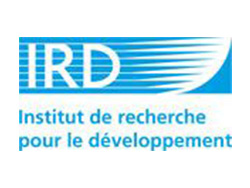 IRD is the French Institute of Research for Development (IRD), Department of Societies, International Research Unit (IRU) No. 236 ‘Resilience’. The IRD, together with its southern partners, addresses international development issues. To improve sanitary conditions, understanding the evolution of society, preserving the environment and resources are the pillars of its work with a view to achieving the millenium development objectives. As a French science and technology establishment, the IRD is under the joint supervision of the Ministries of Research and Foreign Affairs. It operates internationally from its headquarters in Marseille, and two metropolitan centres of Montpellier and Bondy. Thanks to its collaborative activities in research, education and innovation, it works in more than fifty countries in Africa, around the Mediterranean, in Asia, Latin America and overseas. Based on interdisciplinarity, the projects conducted jointly handle issues crucial for the South: tropical diseases and civilisation, relationships between health and environment, climate change, water resources, food security, tropical and Mediterranean ecosystems, natural hazards, poverty, vulnerability and social inequality, migration, changes in the labour market ...
IRD is the French Institute of Research for Development (IRD), Department of Societies, International Research Unit (IRU) No. 236 ‘Resilience’. The IRD, together with its southern partners, addresses international development issues. To improve sanitary conditions, understanding the evolution of society, preserving the environment and resources are the pillars of its work with a view to achieving the millenium development objectives. As a French science and technology establishment, the IRD is under the joint supervision of the Ministries of Research and Foreign Affairs. It operates internationally from its headquarters in Marseille, and two metropolitan centres of Montpellier and Bondy. Thanks to its collaborative activities in research, education and innovation, it works in more than fifty countries in Africa, around the Mediterranean, in Asia, Latin America and overseas. Based on interdisciplinarity, the projects conducted jointly handle issues crucial for the South: tropical diseases and civilisation, relationships between health and environment, climate change, water resources, food security, tropical and Mediterranean ecosystems, natural hazards, poverty, vulnerability and social inequality, migration, changes in the labour market ...Now embedded within the IRD, the agency for inter-institutional development research is a force of scientific mobilisation that aims to unite the French research organisations and universities to act together with the Southern countries.
Key personnel
Jean‐Luc Dubois (male) is a statistician‐economist from the National School of Statistics and Economic Administration (ENSAE, Paris). He holds a doctorate in economics from the University of Versailles St Quentin‐en‐ Yvelines (UVSQ). From 1973 to 1986, he was technical adviser for the French Ministry of Foreign Affairs and Development in Haiti, then in Côte d'Ivoire, on the living conditions of households, with consulting assignments in Brazil and Algeria for international and European organizations.
From 1986 to 1993, as a senior economist at the World Bank, Washington, Africa Technical Department, he focused on the design of measurement tools able to assess poverty and the social consequences of structural adjustment policies. He joined the French Institute of Research for Development (IRD) in late 1993 to lead the programme OCISCA (Observatory of Social Change and Innovation in Cameroon) until 1998. Then as a research director, he set up the Ethics and Socially Sustainable Development team at the University of Versailles St Quentin en Yvelines (UVSQ).
Since 2010, he co‐directs the International Research Unit (IRU) ‘Resilience’, which comprises ‐ in a joint venture between IRD and CIRES (Ivorian Center for Economic and Social Research) ‐ some fifty researchers from the North and the South. As a member of the Executive Council of HDCA (Human Development and Capability Association), whose honorary president is A. Sen, he organized the International Conference entitled 'Knowledge and public action' at UNESCO in 2005 with the support of French development institutions (French Development Agency AFD, Ministry of Foreign Affairs MAE, ...).
He is a member of the IDEA (International Development Ethics Association). He became President of IMPACT (2006‐2009) a think tank bringing together researchers, experts and practitioners for the design of public policies aimed at reducing poverty and inequality. As a member of the High Council for International Cooperation (HCCI 2006‐2008) he contributed to the organization of an International Forum on ‘Equity and Development’ (2007). He taught courses on ‘The households living conditions of households’ (2000‐2006) and ‘Ethics and poverty reduction’ (2007‐2009) for the Master on Sustainable Development at UVSQ.
He is now in charge of the course ‘Socially sustainable development and North‐South relations’ (2007‐2013) for the Master in ‘Solidarity economy and market logics’ at the Catholic University of Paris. His research focuses on development economics, investigation methodology, households’ living conditions and poverty analysis, social sustainability and equity. His current research projects focus on the measurement of capabilities and poverty, the link between vulnerability and resilience, the conditions of social sustainability and equity, the relationship between human development and solidarity economy.
website: www.ird.fr
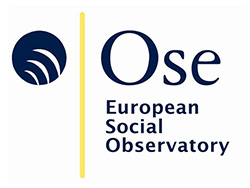 The Observatoire Social Européen (OSE) was founded in 1984 and is now a leading centre for research, information and training specialised in the social dimension of the European Union. It has a forward‐looking approach and operates as a think‐tank, identifying issues as they emerge. The OSE is a partner organisation in several European Framework Programmes (FP6, FP7) and is actively involved in some of the major networks of academic excellence in Europe and North America. It works closely with the Belgian and European public authorities, as well as with trade unions and civil society organisations. In view of the experience in delivering high‐quality research, the European Social Observatory has recently been acknowledged as a scientific institute by the Belgian Science Policy Office.
The Observatoire Social Européen (OSE) was founded in 1984 and is now a leading centre for research, information and training specialised in the social dimension of the European Union. It has a forward‐looking approach and operates as a think‐tank, identifying issues as they emerge. The OSE is a partner organisation in several European Framework Programmes (FP6, FP7) and is actively involved in some of the major networks of academic excellence in Europe and North America. It works closely with the Belgian and European public authorities, as well as with trade unions and civil society organisations. In view of the experience in delivering high‐quality research, the European Social Observatory has recently been acknowledged as a scientific institute by the Belgian Science Policy Office.Since the late 1990s, the OSE investigates issues related to the impact of European integration on national health care systems. We have been involved in many international expert networks and research projects pertaining to health care and collaborate with the Belgian National Institute for Health and Disability Insurance (NIHDI/RIZIV/INAMI) on these topics.
Key personnel
Rita Baeten, master of social sciences, is a senior policy analyst at the OSE. Her research activities focus on the impact of European integration on national healthcare systems and on their social character. Her research topics include themes such as the impact of EU economic governance on health systems; patient and professional mobility in the EU; healthcare services in the internal market; EU pharmaceutical policies and EU‐level co‐operation in the field of healthcare. She is work leader for the OSE contribution to EU research projects such as ECAB (2010‐2013) and ‘Europe for patients’ (2004‐2007).
Both projects address crossborder care and are financed by the European Commission under its Framework Programmes for Research. Rita Baeten advises the Belgian federal authorities on EU policy developments with a potential impact on healthcare in Belgium. She also coordinated the scientific preparation and follow‐up of several international and ministerial conferences on these topics.
website: www.ose.be
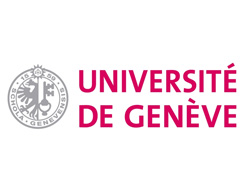 Ranked among the best of the world, member of the League of European Research Universities, the University of Geneva is a complete university, active in most of the scientific domains. Strategic priorities with significant investment are fixed in a pluriannual agreement with the political authorities of the canton of Geneva. The study of social vulnerabilities is the fourth priority within the global objective of maintaining and increasing scientific excellence, and this explicitly in relation with the National Centre of Competences in Research (NCCR) “LIVES. Overcoming Vulnerability. Life Course Perspectives”. Such engagement implies a long‐term, sustained, institutional investment in the areas of research and teaching related to the NCCR. The Institute of Socioeconomics (ISOEC) is host of the NCCR LIVES in Geneva and the seat of a dynamic interdisciplinary research team. Its poles of specialisation include the study of vulnerability in a life course perspective, as well as the analysis of social policies that tackle this issue.
Ranked among the best of the world, member of the League of European Research Universities, the University of Geneva is a complete university, active in most of the scientific domains. Strategic priorities with significant investment are fixed in a pluriannual agreement with the political authorities of the canton of Geneva. The study of social vulnerabilities is the fourth priority within the global objective of maintaining and increasing scientific excellence, and this explicitly in relation with the National Centre of Competences in Research (NCCR) “LIVES. Overcoming Vulnerability. Life Course Perspectives”. Such engagement implies a long‐term, sustained, institutional investment in the areas of research and teaching related to the NCCR. The Institute of Socioeconomics (ISOEC) is host of the NCCR LIVES in Geneva and the seat of a dynamic interdisciplinary research team. Its poles of specialisation include the study of vulnerability in a life course perspective, as well as the analysis of social policies that tackle this issue.Key personnel
Jean‐Michel Bonvin is Professor of Social Policies and Vulnerability at the Institute of Socioeconomics of the University of Geneva from 1st February 2015. He has widespread experience in conducting and coordinating research within international and national projects, e.g. “WorkAble ‐ Making Capabilities Work” (FP7 – 2009‐ 2012), “Eduwel ‐ Education as Welfare, Enhancing opportunities for socially vulnerable youth in Europe” (FP7, ITN – 2010‐2013), “CAPRIGHT: Resources, Rights and Capabilities, In search of social foundations for Europe” (FP6‐ 2007‐2010), “LIVES: Overcoming Vulnerability – Life Course Perspectives” (Swiss National Fund for Research, National Centres of Competence in Research [NCCR], 2011‐2014, leader of an Individual Project (IP) on social policies and their impact on the life course of their beneficiaries), “EUROCAP: Social Dialogue, Employment and Territories, Towards a European Politics of Capabilities” (FP5, 2002‐2006), as well as the ongoing “SoCIetY: Social Innovation ‐ Empowering the Young for the Common Good” (FP7 – 2013‐2015). He is frequently commissioned for evaluation reports by federal and cantonal Swiss authorities, e.g. “Evaluation de l’efficacité des mesures d’insertion sociales pilotes en faveur des jeunes adultes bénéficiaires du revenu d’insertion” (Department of Health and Social Affairs, Canton Vaud, 2007).
He has published extensively in the fields of active labour market policies (especially unemployment insurance and social assistance), theories of justice (esp. the Capability Approach), sociology of firms and of financial activities (esp. corporate social responsibility), and new public management. He is member of the Editorial Committee of Négociations, Les politiques sociales and Revue suisse de travail social. The Capability Approach constitutes the main theoretical perspective and methodological tool mobilised in his research projects.
These revolve, among others, around issues such as social integration policies (esp. in the fields of unemployment, disability and social assistance), disadvantaged youth transition to the labour market, regulation of the labour market and sociology of firms.
website: www.unige.ch
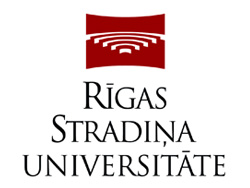 Rīga Stradiņš University is a public University in the Republic of Latvia supervised by the Latvian Ministry of Health. The University mission is to train highly qualified experts in the fields of healthcare and social sciences needed in Latvia, the European Union and in the whole world having knowledge, skills and attitude corresponding to the EU requirements and standards and to humanitarian traditions. In the social sciences area RSU researchers strongly focus on social policy, social exclusion, poverty, especially child poverty, and employment issues.
Rīga Stradiņš University is a public University in the Republic of Latvia supervised by the Latvian Ministry of Health. The University mission is to train highly qualified experts in the fields of healthcare and social sciences needed in Latvia, the European Union and in the whole world having knowledge, skills and attitude corresponding to the EU requirements and standards and to humanitarian traditions. In the social sciences area RSU researchers strongly focus on social policy, social exclusion, poverty, especially child poverty, and employment issues.The Faculty of social sciences at RSU is experienced in policy‐oriented research for local governments, the government of Latvia, and the European Commission. In the recent research project ‘Overcoming the crisis in Latvia: economic, social and communication aspects’, an interdisciplinary approach was used (sociology, economics, communication science, anthropology, etc.). The University has participated in FP5 (ENABLE‐AGE Project), FP6 (STEPS Project), FP7 (collaborator in Ideas advanced research grant ELITES08, FUTURAGE), participates in various COST activities, INTERREG, ERA‐NET projects and a multitude of research projects on a national level. A major infrastructure upgrade from Structural funds is approaching its completion.
Key personnel
Tana Lace has a background in sociology and cultural theories. She specialised in research projects on employment and labour market, gender equality and social policies where you was responsible for data analysis and policy evaluation. In 2006, she became head researcher in the National Program for ‘labour market research’ as well as for ‘causes and duration of social exclusion and unemployment’ of the Ministry of Welfare of Latvia. She was also leading the evaluation of the project ‘Evaluation of the Community initiative EQUAL in Latvia’. From 2008 to 2012 she was the Latvian expert in the EC’s Network of Independent Experts on Social Inclusion. For the moment, she is involved as researcher in the research project ‘Overcoming the crisis in Latvia: economic, social and communication aspects’.
Ritma Rungule is a leading researcher at the Rīga Stradiņš University. She has a background in sociology and philosophy. She specialised in the management of research projects, strategic planning, guidance in elaboration of methodology and process of data analysis, preparation of reports and publications.
website: www.rsu.lv/eng/
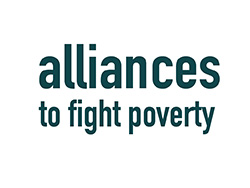 Beweging vzw is an important Flemish non profit organisation with a social purpose. It’s objective is to emancipate the workers and especially the most vulnerable in society in a spirit of human rights. Beweging vzw is a leading member of a network of trade unions, socio‐cultural organizations, health insurance organizations and welfare organizations. To reach its objective Beweging vzw uses this network and the network of volunteers and professionals. One of the main tasks is to set up alliances or coalitions to enhance the empowerment of workers and the most vulnerable in society.
Beweging vzw is an important Flemish non profit organisation with a social purpose. It’s objective is to emancipate the workers and especially the most vulnerable in society in a spirit of human rights. Beweging vzw is a leading member of a network of trade unions, socio‐cultural organizations, health insurance organizations and welfare organizations. To reach its objective Beweging vzw uses this network and the network of volunteers and professionals. One of the main tasks is to set up alliances or coalitions to enhance the empowerment of workers and the most vulnerable in society.Beweging vzw has set up Decenniumdoelen, a Flemish alliance of different antipoverty organizations, welfare organizations and trade unions. The objective of this alliance is to influence policy makers and to raise awareness on poverty and inequality in society. The ‘Alliances to fight poverty’ are a second kind of coalition between different stakeholders, this time at the European level. Next to these coalitions Beweging vzw has taken the lead in coalitions on civil society, on climate change, on mobility and so on.
Key personnel
Michel Debruyne has a background in sociology and political science and throughout his carrier has worked on creating new coalitions or alliances to bring the specific topic of empowerment of vulnerable groups to the political forefront. He is now working in the study services of Beweging vzw on the topics of welfare, poverty, housing and institutional affairs. Previously, he was respectively coordinator of a NGO on housing and urban planning and of the study service of a Flemish political party. He is member of different advisory boards (welfare ‐ SARWGG, housing – Vlaamse Woonraad, spatial planning – SARO, social partners ‐ SERV) for the Flemish government. He has organized the Decenniumdoelen and is the coordinator of the ‘Alliances to fight poverty’.
He is responsible for the meetings, seminars and conferences of the ‘Alliances to fight poverty’, the establishment of structural contacts with European stakeholders and policy makers, developing position papers and policy briefs, and for the publications of the ‘Alliances’. He coordinates also the website. With the ‘Alliances’ he published three reports on the future of social Europe.
website: www.alliancestofightpoverty.org and www.beweging.net
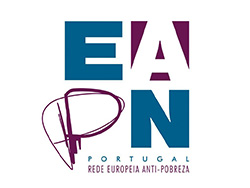 EAPN Portugal is a network whose main purpose is to fight poverty and social exclusion, and privileges information, training, and research as key areas of action. EAPN Portugal is a national organisation which represents the European Anti‐Poverty Network. Since 1994 it has started a process of decentralization through the creation of Regional Networks (RN). Currently, EAPN Portugal has 18 RN, one in each district of the country and 1,351 members (688 organisations and 663 individuals).
EAPN Portugal is a network whose main purpose is to fight poverty and social exclusion, and privileges information, training, and research as key areas of action. EAPN Portugal is a national organisation which represents the European Anti‐Poverty Network. Since 1994 it has started a process of decentralization through the creation of Regional Networks (RN). Currently, EAPN Portugal has 18 RN, one in each district of the country and 1,351 members (688 organisations and 663 individuals).Their main activities are: National and Transnational Projects; Research; Training activities for social professionals; Working Groups on different areas (child poverty, active ageing, homeless, Roma communities, empowerment of people experiencing poverty); lobby; dissemination of information; publishing; etc. Because of its integration at the local level through the regional networks, EAPN Portugal has a clear view on the needs of the organisations operating in the field and on the needs of the population, especially those in situation of poverty and social exclusion.
At the same time each regional network integrates local platforms (Territorial Platforms), which are structures of Local Social Networks created with the aim of enhancing the organisation of local resources and the planning of social answers and social equipment at local/regional level. These platforms are also structures for debate, consulting on issues/problems identified by social diagnosis developed at the local level. This way, EAPN Portugal can give an important added value to this project.
Key personnel
Sandra Maria Lopes Mendes dos Santos Faria Araújo postgraduated in ‘Management of non‐profit Organizations’ promoted by the Universidade Católica Portuguesa – Porto, EAPN Portugal and the União Distrital do Porto das Instituições Particulares de Solidariedade Social, within the framework of the Project ACREDITAR (EQUAL Programme). From 1992 to 1994, she worked as Social Worker in a Community Development Project ‐ in the Historic Centre of Gaia ‐ promoted by the Regional Social Security Centre of Porto.
In the framework of this project, with the objective the socio‐cultural promotion of the population and the socio‐professional integration of disadvantaged groups, had participated in actions developed in the field of community work. Since October 1994 she performs duties in the European Anti‐Poverty Network/Portugal. Currently, and since January 1999, is responsible for the coordination of the organisation as the Executive Director. In this function has acquired an extensive experience in coordinating national and transnational projects, as well as the development of training activities and organization/participation in conferences.
website: www.eapn.pt
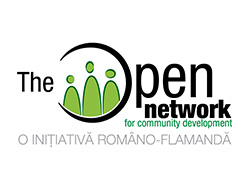 ‘The Open Network for Community Development’, has been established as a Romanian‐Flemish initiative. The scope of the Foundation is to facilitate a sustainable community development by implementing community development projects at the local, regional, national and international level and by promoting Romanian‐Flemish best practices in the field, without excluding other possible partnerships. The Foundation’s goals and mission are in line with the international initiatives for sustainable community development, as well as with the promotion of the best practices of the Romanian‐Belgian cooperation.
‘The Open Network for Community Development’, has been established as a Romanian‐Flemish initiative. The scope of the Foundation is to facilitate a sustainable community development by implementing community development projects at the local, regional, national and international level and by promoting Romanian‐Flemish best practices in the field, without excluding other possible partnerships. The Foundation’s goals and mission are in line with the international initiatives for sustainable community development, as well as with the promotion of the best practices of the Romanian‐Belgian cooperation.The Foundation will work within communities, locally, regionally, nationally and internationally, focusing on an embedded approach of the community development concept in the context of all national and E.U. policies in order to achieve the best possible level of sustainable community development. Specific objectives are: to actively involve citizens in order to achieve sustainable community development, with and for the people; to engage community members, locally, regionally, nationally and internationally by means of information and lobbying for resources, trainings, regular dialogue and exchanges, thereby involving the community members in the shaping of European and national policies, as well as in the implementation and monitoring of national legislation; to act in a democratic, transparent, representative and inclusive way, ensuring a transparent consultation processes, information strategies and promotion of best practices in areas such as: education, leadership, health, community development, building up civil society, culture and heritage, environment and waste management, agriculture, sustainable tourism, entrepreneurship; to coordinate and collaborate within the undertakings of Romanian‐Belgian organizations representing sustainable community development. Inside the Organizational Network we are developing 56 local communities from rural areas and from the small urban towns of Romania. The poverty of the population as well as the lack of medical, social, and educational services delivered by the state, suggest those communities for giving relevant testimonies in our project about Romanian population level life, about their social life according with community economic development.
Key personnel
Cristina Victoria Chert, European project manager with international and national experience of 15 years in community development projects.
Patrick Van den Nieuwenhof, researcher in Cultural social projects based on Cultural changes affected by socio‐economic community development.
website: www.theopennetwork.ro
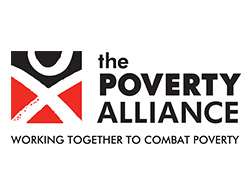 The Poverty Alliance was established in 1992 and is the national anti‐poverty network in Scotland. Our aim is to combat poverty by working with a range of stakeholders from civil society organisations, private sector organisations, local and national government. We have more than 200 members and are currently core funded by the Scottish Government. In addition we also receive support from local authorities, charitable foundations and through fundraising and consultancy work. The Poverty Alliance’s carries out a range of activities in pursuit of its main aim, including research, policy development, advocacy and community engagement. In addition to our work at the local and national level in Scotland and the UK to support the development of anti‐poverty policies, we are also active at the European level. We represent the European Anti‐Poverty Network (EAPN) in Scotland and take a leading role in EAPN work in the UK.
The Poverty Alliance was established in 1992 and is the national anti‐poverty network in Scotland. Our aim is to combat poverty by working with a range of stakeholders from civil society organisations, private sector organisations, local and national government. We have more than 200 members and are currently core funded by the Scottish Government. In addition we also receive support from local authorities, charitable foundations and through fundraising and consultancy work. The Poverty Alliance’s carries out a range of activities in pursuit of its main aim, including research, policy development, advocacy and community engagement. In addition to our work at the local and national level in Scotland and the UK to support the development of anti‐poverty policies, we are also active at the European level. We represent the European Anti‐Poverty Network (EAPN) in Scotland and take a leading role in EAPN work in the UK.The Poverty Alliance has a long track record in delivering activities that are designed to reframe debates about poverty and inequality, and how we develop more effective ways to address these problems. We have been successful in contributing to important debates, but also in having an impact on important policy developments that address poverty, particularly at the Scottish level.
Key personnel
Peter Kelly, Director of the Poverty Alliance. Peter has developed extensive experience in working with policy makers and politicians on a range of social justice issues over the last 20 years. He has particular knowledge and expertise in areas around labour market inequality. As well as having a track record in research in low waged labour markets, he has also played a key role in the development and delivery of the campaign for a living wage in Scotland. He has also helped contributed to the development of the EAPN position on in‐work poverty. Peter is also Vice President of EAPN.
In addition to work around labour market inequality he also has detailed knowledge of the social protection system in the UK, and has appeared as an expert witness in a number of parliamentary committees at the Scottish and UK levels. Finally, he has extensive experience in developing participatory policy development process. Over the last 10 years he has played a key role in developing a number of participatory forums that have brought together policy makers and people with direct experience of poverty to discuss a range of social justice policy issues.
Fiona McHardy, Research and Policy Officer, Poverty Alliance. Fiona has more than 5 years’ experience with the Alliance in carrying out a range of research projects. Over this time she has carried out participatory research projects with young people, ex‐offenders and lone parents. In addition, she has also been involved in research carried out at the European level as part of the Drivers Project focusing on health inequalities. Fiona has written the synthesis report drawing together work from 5 member states. She has also carried out research into international anti‐poverty strategies, children’s recreational resources, food poverty and welfare reform. Given her breadth of experience she would made a valuable contribution to the Reinvest project.
Dr Lisa Whittaker (female), Research Officer, Poverty Alliance. Lisa has a particular expertise in participatory research, especially with young people. She has published extensively on issues associated with disadvantaged young people. She has a great deal of experience using a variety of qualitative research methods.
website: www.povertyalliance.org
 CNCA ‐ Coordinamento Nazionale Comunità di Accoglienza (National Coordination of Care Communities) was established in Turin in 1982. It is a Federation of about 250 Third‐Sector organisations, located in 19 out of 20 regions in Italy, including social cooperatives, support centers, care and treatment communities, etc.
CNCA ‐ Coordinamento Nazionale Comunità di Accoglienza (National Coordination of Care Communities) was established in Turin in 1982. It is a Federation of about 250 Third‐Sector organisations, located in 19 out of 20 regions in Italy, including social cooperatives, support centers, care and treatment communities, etc.
CNCA is active in all fields of disadvantage and marginalisation, with the aim of promoting citizens’ rights and social well‐being. Its main aim is to foster debate and channel the views of member organisations, in order to contribute to local and national development on social and economic policies and on the organisation of social services, in the different fields of intervention.
The guiding principles sustaining CNCA are translated in the idea of “welcoming communities”, able to provide guidance, solidarity and support to everybody’s life, and in particular to disadvantaged people.
CNCA works with: problematic drug and alcohol users and people addicted to gambling, prisoners and ex‐offenders, physically and mentally disabled people, homeless people, women and children victims of trafficking for exploitation, people affected by AIDS, migrants, unemployed, children and young people with personal and family problems on social integration and community involvement initiatives.
To pursue the above‐mentioned aims, the Federation’s main activities are the following:- promote exchanges between local experiences;develop a cultural and political presence, in order to translate the daily experience with disadvantaged people into a project;
- implement research on social change and individual characteristics of disadvantaged populations;
- organise training, educational and counselling initiatives, in order to improve the effectiveness of services managed by the memeber organisations;
- promote labour market inclusion of disadvantaged people, through cooperation between public and private organisations, on the basis of the 276/03 Italian law;
- provide advice and support to people with any type of disability;
- define possible common actions to fulfil the aims of the Federation.
Key personnel
Cinzia Brentari has an education in law and criminology. She is an experienced project and programme manager for the social and health sector and has worked for a number of years as EU project manager for charities, foundations and universities in different EU Member States.
She has developed specific expertise on European policies, advocacy and networking on harm reduction in the criminal justice system. Within this sector, she has coordinated research, organised events, trainings and capacity building initiatives, thus bridging expertise between the civil society and institutional sector.
She has contributed to European research and has published, among others, for the European Monitoring Centre on Drugs and Drug Addiction.
Between 2001 and 2005 she worked at the European Commission in Brussels in managing development cooperation projects and supporting EU policy development on drug demand reduction. Since, she has been a consultant for the European Commission and its Agencies on project assessment, management and evaluation. In 2012 she worked at the Council of the European Union as political advisor in the humanitarian aid sector.
Cinzia provides expertise in project and organisational development and fundraising, in particular with reference to EU funds.website: www.cnca.it
© 2025 RE-InVEST | info@re-invest.eu
 This project has received funding from the European Union’s Horizon 2020 research and innovation programme under grant agreement No 649447. Any dissemination of results must indicate that it reflects only the author’s view and that the Commission is not responsible for any use that may be made of the information it contains.
This project has received funding from the European Union’s Horizon 2020 research and innovation programme under grant agreement No 649447. Any dissemination of results must indicate that it reflects only the author’s view and that the Commission is not responsible for any use that may be made of the information it contains.
